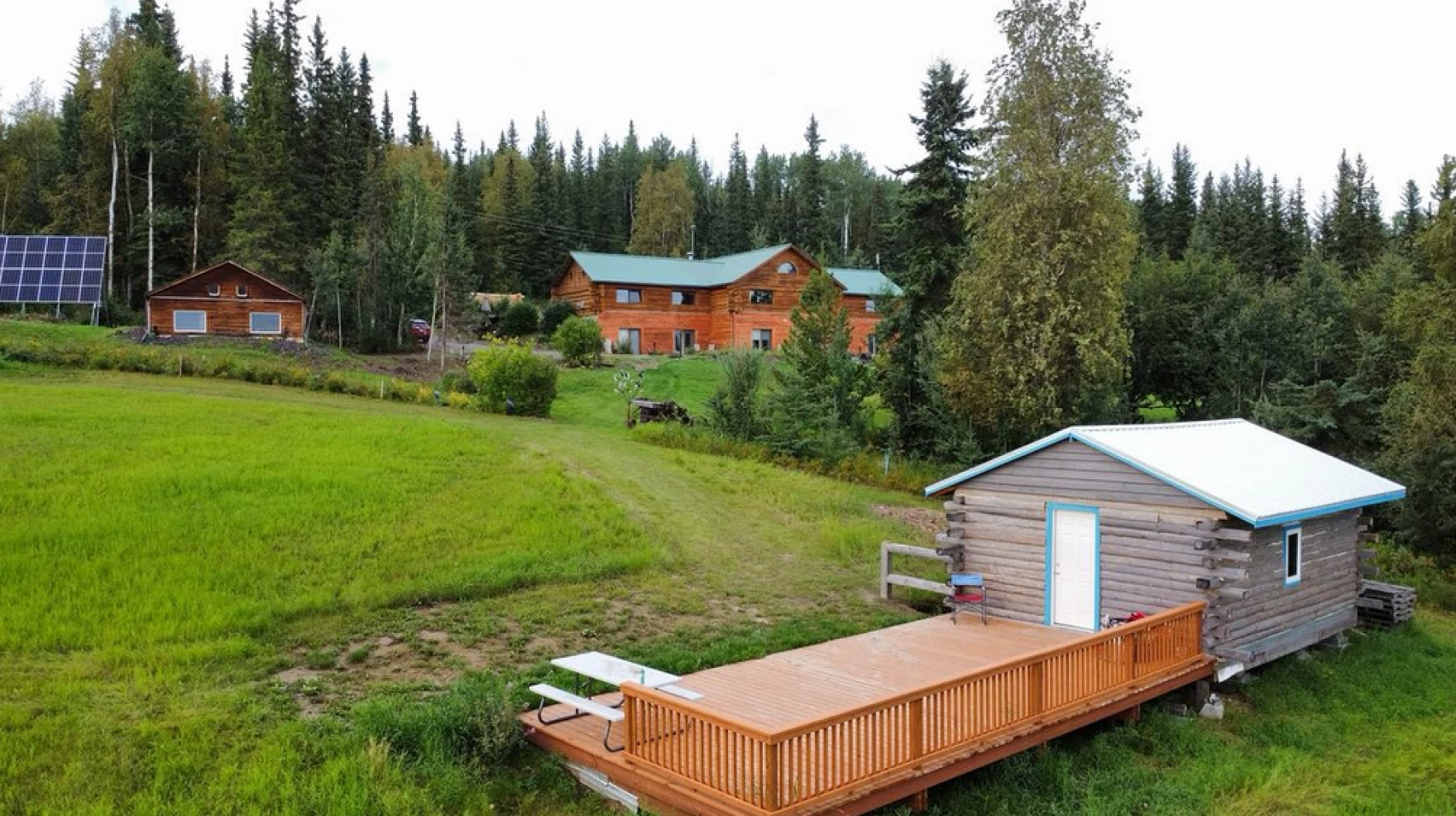
The federal Department of Agriculture is offering grants to help people who live and work in Alaska’s rural areas reduce their energy costs. The program is available to rural farmers, small business owners, tribal organizations, nonprofits and others.
Doing business in Alaska is challenging, and even more so in the state’s rural areas. That’s why the USDA is offering bigger grants this year through its Rural Energy for America Program, or REAP, that helps rural businesses reduce one of their biggest expenses.
“One of the highest fixed costs is the energy cost,” said Dan Smith, the state energy coordinator for the Agriculture Department’s Alaska Rural Development Office. “And so if you’re able to bring down the energy cost, it just makes your operation much more sustainable.”
That’s what Kory Eberhardt had in mind when he applied for a nearly $18,000 REAP grant a couple of years ago to help pay for solar panels on his family’s lodge off Chena Hot Springs Road, east of Fairbanks.
Eberhardt says he’d considered investing in solar panels, but hesitated, because of the up-front costs.
“I thought it’d be great opportunity with the program,” he said. “So, by having that grant, that kind of sealed the deal.”
Those are the sort of projects the REAP grants are intended to encourage, said Julia Hnilicka, the USDA’s state Rural Development director.
“We know that the costs are exorbitantly higher the further you get away from urban areas,” she said.
Hnilicka was born and raised in Nenana, so she’s pretty familiar with living and working in rural Alaska.
“We want to make sure that small businesses have a fighting chance to access new technologies at a reduced rate,” she said, “because it is so very important for the long-run viability of their businesses.”
Hnilicka says USDA has for years offered REAP grants that would pay up to a quarter of energy-project costs. But the nationwide program got a big infusion of cash from the 2022 Inflation Reduction Act that enabled the agency to award grants that pay up to half the cost.
“Now, we have the opportunity to go 50-50 with the customer,” she said.
Smith, the state energy coordinator, said the program offers grants for both renewable-energy systems like wind and solar; and energy efficiency, that help pay for workplace improvements that keep heat from leaking to the outside.
“Insulation, new windows and upgrading thermostats and building controls,” he said.
Smith encourages residents who qualify to contact the Alaska Rural Development Office staff as soon as possible to find out about the program and to get help submitting applications that must include estimates on how much the improvements will reduce energy costs.
“Whatever fits best for your business, or your agricultural operation, your co-op — you just have to show us the math supporting that this is a good fit,” he said.
The grants are awarded on a quarterly basis, and that’s also when applications are accepted. The next deadline to apply is March 31, followed by one on June 30 and Sept. 30.
You can find out more by going online to the USDA’s Alaska Rural Development office website.
Tim Ellis is a reporter at KUAC in Fairbanks.




